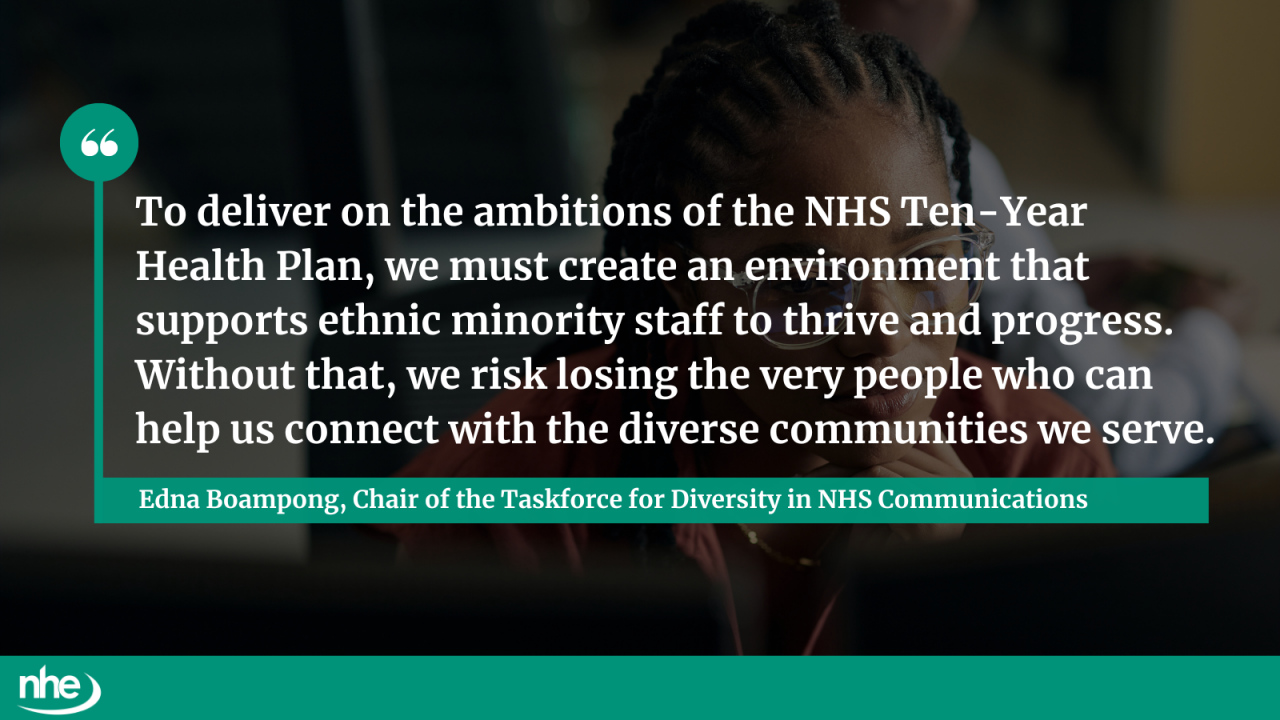A new report published today warns that the NHS risks losing a significant proportion of its ethnic minority communications workforce within three years unless urgent action is taken to address discrimination, poor workplace culture, and lack of career progression.
The report, from the Taskforce for Diversity in NHS Communications, was commissioned by the NHS Confederation, NHS Providers, and the Centre for Health Communication Research (CHCR). It reveals that 26% of ethnic minority communications professionals expect to leave the NHS within three years, citing racism, microaggressions, and limited opportunities as key drivers.
The report highlights:
- 63% of BME communicators are dissatisfied with NHS workplace culture
- Many view current diversity initiatives as superficial or “tick-box exercises”
- BME staff report lower job satisfaction, poorer wellbeing, and less trust in leadership
- NHS restructuring and cost-cutting could disproportionately impact BME staff
The findings are based on a survey of over 300 communications professionals, focus groups, and interviews with senior NHS and third sector leaders.
To address these issues, the Taskforce has launched a Charter for Diversity in NHS Communications, with a headline ambition that 15% of senior NHS communications leaders should be from ethnic minority backgrounds by 2030—up from just 5% today.
Chair of the Taskforce for Diversity in NHS Communications, Edna Boampong, said:
“We cannot afford to lose the limited talent we have from ethnic minority backgrounds. Doing so risks undoing progress on diversity and inclusion.
“Representation matters – especially in communications. A team that reflects the local population is better positioned to build trust, understand cultural nuances and engage communities meaningfully, supporting the NHS's aim to reduce inequality.
“Equally, having diverse voices at senior levels ensures a range of lived experiences and cultural perspectives shape decisions. This isn’t just about fairness – it’s about making better, more inclusive decisions.
“While our report is focused on comms professionals in the NHS, we know that there is a lack of diversity at a senior level, across all sectors and that staff from ethnic minority backgrounds are more likely to face bullying and harassment.
“To deliver on the ambitions of the NHS Ten-Year Health Plan, we must create an environment that supports ethnic minority staff to thrive and progress. Without that, we risk losing the very people who can help us connect with the diverse communities we serve.”

Key recommendations include:
- Guaranteed interviews for BME candidates meeting minimum criteria
- Blind recruitment to reduce bias
- National mentoring programmes supported by DHSC and NHS England
- Targeted placements and mentorships for diverse students
- A competency framework for career progression
- Support for postgraduate training in healthcare communications
NHS leaders—including chairs, chief executives, and communications directors—are being urged to sign the charter and take personal responsibility for driving change.
Image credit: iStock



















